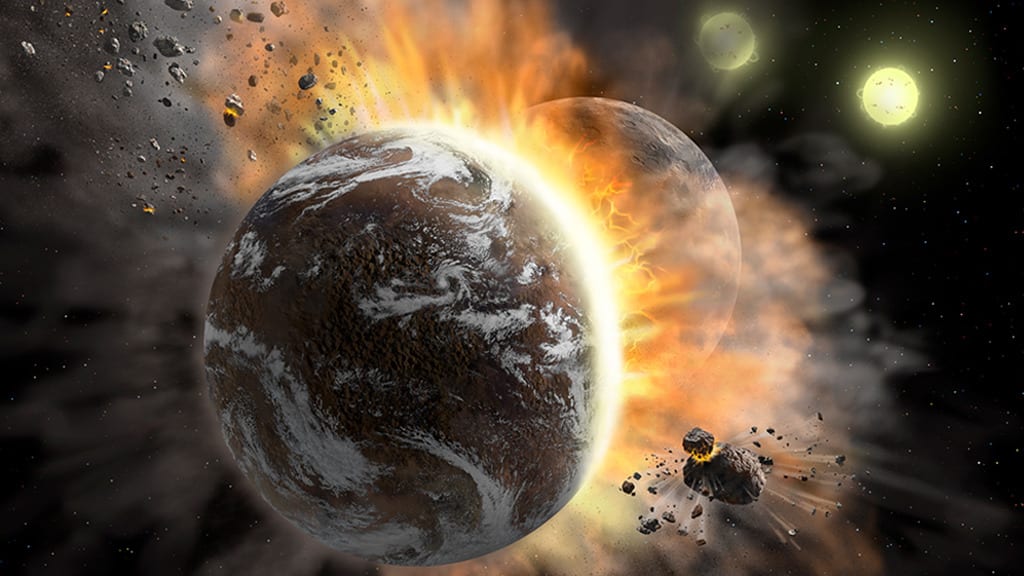Exploring the Universe: Recent Discoveries in Astronomy and Cosmology
AStronomy and Cosmology Discoveries

Astronomy, the study of celestial objects and phenomena, has fascinated humans for millennia. From the ancient civilizations who looked up at the night sky in awe to the modern scientists using powerful telescopes and cutting-edge technology, our understanding of the universe has grown immensely. In recent years, there have been numerous groundbreaking discoveries that have reshaped our understanding of the cosmos and opened up new frontiers of exploration. In this article, we will delve into a few of these recent discoveries in astronomy and cosmology.
One of the most significant discoveries in recent years has been the detection of gravitational waves. Predicted by Albert Einstein a century ago in his theory of general relativity, gravitational waves are ripples in space-time caused by the acceleration of massive objects. These waves were first observed directly in 2015 by the Laser Interferometer Gravitational-Wave Observatory (LIGO), leading to a Nobel Prize in Physics in 2017.
Gravitational waves provide a new way of observing the universe, allowing scientists to probe events and phenomena that cannot be observed with traditional telescopes. For example, the merger of two black holes or neutron stars can produce gravitational waves that can be detected even if the objects themselves cannot be observed optically. This has led to a deeper understanding of black holes and their behavior, as well as the discovery of new types of astronomical objects like binary black holes.
Another exciting discovery in recent years has been the confirmation of the existence of exoplanets, planets that orbit stars outside our own solar system. Before the discovery of exoplanets, astronomers only had knowledge of the planets in our own solar system. However, advancements in technology, particularly the use of space-based telescopes like NASA's Kepler mission and the Transiting Exoplanet Survey Satellite (TESS), have allowed scientists to detect and study thousands of exoplanets.
These discoveries have not only expanded our understanding of the vast number of planets in the universe but have also raised the possibility of finding habitable worlds and even extraterrestrial life. The discovery of exoplanets within the habitable zone of their host stars, where conditions might be suitable for liquid water and, therefore, life as we know it, has fueled scientific and public interest in the search for life beyond Earth.
In addition to these discoveries, cosmology, the study of the origin and evolution of the universe, has also seen significant advancements in recent years. One of the most groundbreaking discoveries in cosmology is the evidence for the existence of dark matter and dark energy. These mysterious substances, which cannot be directly observed, make up the majority of the mass-energy content of the universe but remain poorly understood.
The discovery of dark matter and dark energy has revolutionized cosmological theories, leading to the development of the standard model of cosmology known as the Lambda-CDM model. This model successfully explains a wide range of observations, such as the cosmic microwave background radiation, the large-scale structure of the universe, and the accelerated expansion of the universe. However, the nature of dark matter and dark energy still remains one of the biggest unsolved mysteries in modern cosmology.
Advancements in technology and our ability to observe the universe at different wavelengths have also led to the discovery of new phenomena such as fast radio bursts (FRBs). FRBs are mysterious cosmic signals that last only a few milliseconds but release an immense amount of energy. Initially detected in 2007, the origin of these bursts remains unknown, with possible explanations ranging from pulsars to alien civilizations.
The study of FRBs and other transient phenomena has opened up new avenues of research, allowing scientists to probe extreme astrophysical environments and test fundamental physics. These discoveries not only deepen our understanding of the universe but also have practical implications, such as helping us develop better telescopes and communication systems.
In conclusion, recent discoveries in astronomy and cosmology have greatly expanded our knowledge of the universe and opened up new frontiers of exploration. From the detection of gravitational waves and the confirmation of exoplanets to the discovery of dark matter and dark energy, these advancements have reshaped our understanding of the cosmos. Furthermore, these discoveries have not only expanded our scientific knowledge but also captivated the public's imagination, inspiring future generations to continue exploring the wonders of the universe. As technology advances and our scientific instruments become even more powerful, we can expect even more exciting discoveries in the coming years, propelling us further into the depths of the universe.
About the Creator
Richard Abolarinwa
As an Electrical engineer, I am passionate about finding creative solutions to complex problems. my interests extend beyond just electrical systems. I'm also a passionate writer with a love for health, technology, science, and engineering.






Comments (9)
The author's deep understanding of the subject matter is evident throughout the article.
This article is a well-researched piece, backed up by the latest statistics and studies
This article is well researched and has a clear structure makes it easy to follow
The content in this article is relevant
educative
Very Thorough
wow, this article opened my eyes to so many things i wasn't aware of. great work
Thorough & Very Well Written!
Nice work